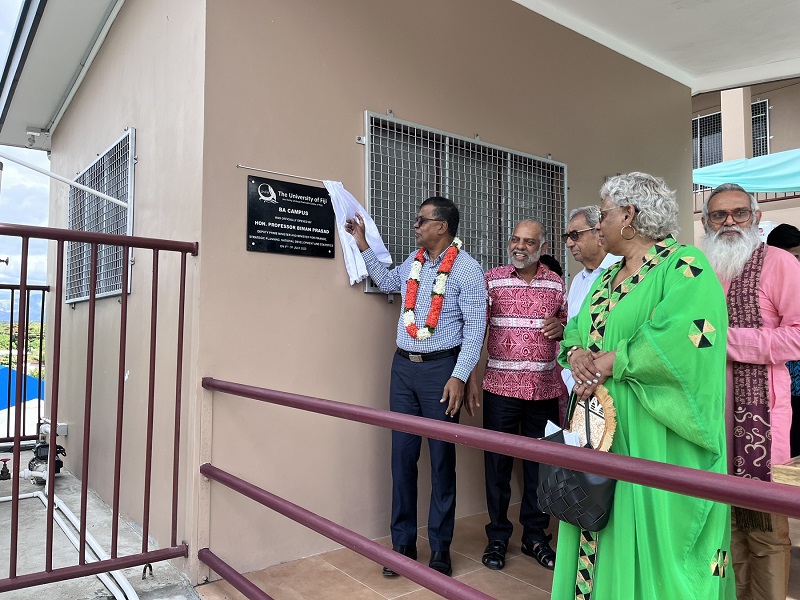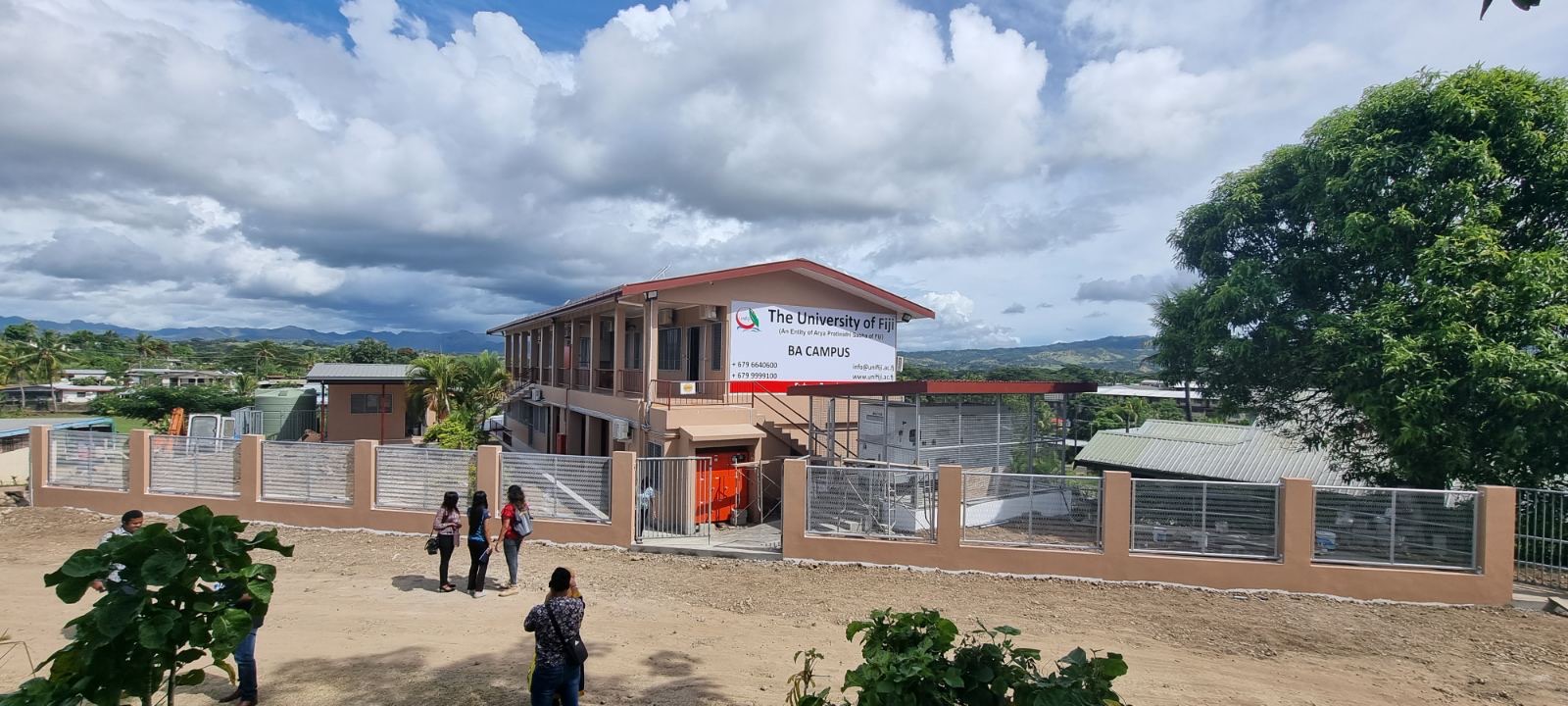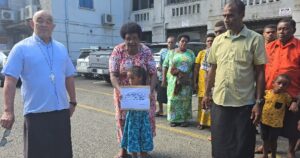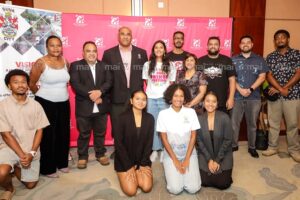The University of Fiji opened its Ba campus today, its third in the country, dedicated mainly, though not exclusively, to its Bachelor of Medical Health Science (BMHS) program.
It is the university’s third campus in the country in addition to the Saweni Campus, and Samabula Campus which was initially dedicated only to legal studies.
“The building itself that is the Ba Campus now was given as a gift to the university by its founders, The Arya Pratinidhi Sabha, to de-centralise our higher education offerings and make them more accessible to students who previously had to travel long distances to attend classes,” Vice-Chancellor Professor Shaista Shameem said.
The opening of the campus by Minister for Finance and Deputy Prime Minister Profesor Biman Prasad is the realisation of one of the initiatives outlined in the university’s Strategic Plan 2022-2026, which also includes plans to open another campus in Labasa.

Professor Shaista says the strategic plan is built on the vision to provide Covid-19 influenced higher education- where students not only gain formal qualifications but also emotional intelligence including attributes like empathy, compassion, integrity, courtesy, excellent communication skills, and care for the vulnerable in society.
“We also have to consider our duty to regenerate our people, place, and planet- that means a design for life through education that will make us good ancestors. Any education programme that does not take into account climate change, global warming, pollution, and waste management will not be attractive to young people. The youth of today want adults to take responsibility for environmental damage caused by rapid industrialisation in the 20th century; to them, economic growth has to have a regenerative component. That is the focus of our University’s Strategic Plan 2022-2026.
“There are two aspects of our 5-year strategy that we are particularly proud of- the first is our mission to be the critic and conscience of society and the second is our commitment to academic freedom which is provided by section 40 of the University of Fiji Act. These are the founding philosophies of our human values approach to higher education.
“We know of very few universities that apply this approach. It is a different type of innovation for higher education and its time has truly come. Indeed, the Founders have invested in the spectrum of education- from early childhood, through primary and secondary schools and to university where life-long learning is also offered. This is the model that we find particularly important for our human values approach and for nation-hood, as we offer imaginative and creative education in all its complexities, and seamlessly from cradle to the grave. It is the framework represented by the Gurukul and Drua methodology that we have adopted.”
In opening the campus, Professor Biman described it as a proud achievement for The Arya Pratinidhi Sabha in seeing not only the need but realising and steering the formation of the university.
“I am sure the students, and lecturers, will be delighted. It will contribute so much to shaping the minds and careers of young men and women in this community and indeed the country. This is an occasion for celebration for Ba, for Fiji, for The Arya Pratinidhi Sabha because it has stayed true to the vision and philosophy of its founders who foresaw education, especially the education of women and empowerment of women through education as one of his philosophical pillars.”
The campus opening today comes seven months after the university acquired its international quality assurance badge recognising that the University as a whole, in its programmes, systems and operations, is now internationally accredited.
“Indeed, we have achieved the same status as well-known universities in the UK and Europe, for example Cambridge and St Andrews to name just two. Our international reputation is now secure with the acquisition of the Accreditation Badge which means that our qualifications and our graduates are internationally recognised.”
The quality assurance process took two years of rigorous evaluation and assessment by an international quality review team which culminated with the badge issuance in January this year.









